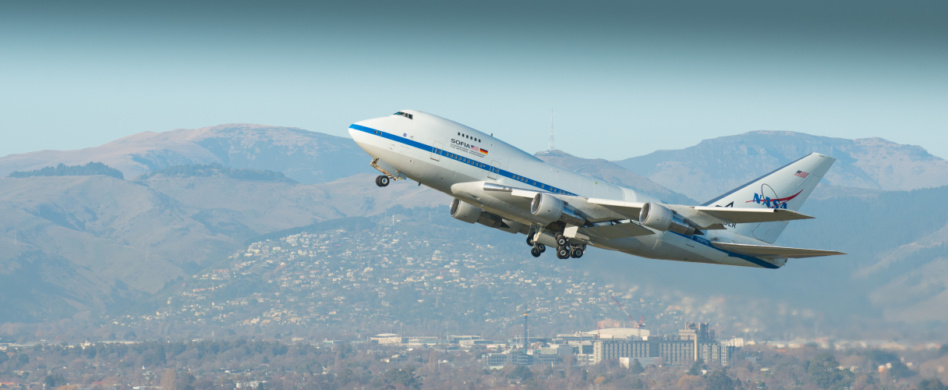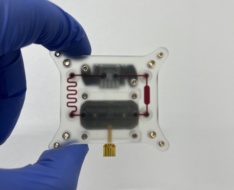It’s official: NASA and German space agency DLR have agreed to end operations on the expensive airplane-mounted infrared observatory this year.
NASA has been trying to cut the line item from its budget for a few years now, but for the past two years, Congress has restored the observatory’s funding in the agency’s federal budget. SOFIA is an expensive project, chewing up ~$85M per year for “modest scientific productivity,” per Astro2020. In November, the decadal survey’s authors recommended that NASA terminate the project.
SOFIA: The Stratospheric Observatory for Infrared Astronomy basically consists of a 2.7m infrared reflecting telescope mounted on a Boeing 747 aircraft. It’s used in a similar way to a ground observatory, but by flying above 99% of the infrared-blocking atmosphere, it can provide a unique vantage point for astronomers to observe the universe.
SOFIA performs 10-hour overnight flights, collecting infrared data from distant objects in space. Arguably, SOFIA’s most significant achievement was identifying water on the sunlit surface of the Moon.
- The observatory has been operating for the past eight years, and had an original mission duration of five years.
- 70 more flights are planned before the craft is officially retired at the end of September.
Missing the mark: While SOFIA has been a unique program for NASA and for the astronomers that utilize it, it just doesn’t keep up with the productivity standards needed to justify its $85M a year price tag. Plus, other ground-based and orbiting telescopes can fulfill the same science needs for the US space agency and astronomers.
DLR covers 20% of program costs for SOFIA each year, so NASA needed the German agency’s sign-off to terminate the observatory’s operations. DLR has agreed to an orderly shutdown of the project at the end of its current mission extension.




